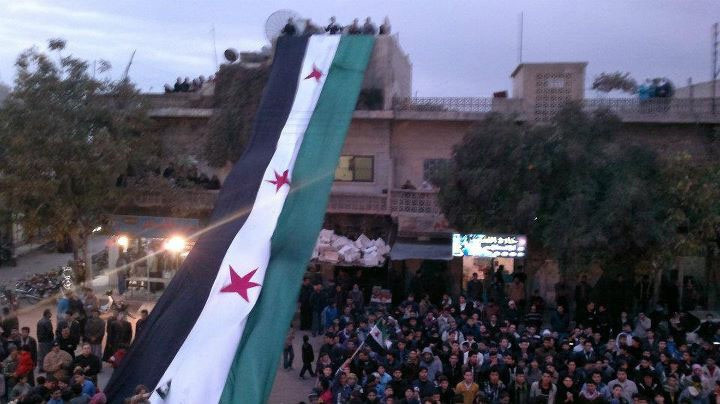Who will Control a Liberated Syria?

While the Syrian National Council has released a document setting out plans for a transitional phase if the Assad regime falls, the armed opposition, the Free Syria Army, is gaining popularity.
The opposition council Monday issued a draft political programme setting out its objectives as well as a plan for the transitional period after the fall of the Baath regime.
The program insists on the need to preserve the peaceful nature of the Syrian revolution, and calls for more strikes, demonstrations and civil disobedience.
It also calls for international protection for Syrian civilians and reveals the SNC will now seek international recognition.
During a transitional period the SNC says it "will take responsibility, with the military apparatus, to manage the transitional period and guarantee the safety and security of the country."
The programme also wants to organise a "national and all-inclusive convention with the theme of "democratic change" to implement a programme to include all segments of Syrian society "whose hands have not been stained with blood or theft of national wealth from among the regime's officials."
The next step would see the election of a constituent assembly within a year. The assembly would then draft a new constitution to be ratified by popular referendum.
Parliamentary elections would also follow within six months.
The group would set up an independent judicial commission to "investigate crimes committed against the people" and "a national reconciliation commission in collaboration with civil society organizations, human rights groups, and volunteers to cleanse all residue from the era of corruption and tyranny."
The council clearly reveals a vision of a new Syria, more pluralistic and more democratic. It wants to create a state based on equality for all citizens and where human rights are respected.
"The new Syria is a democratic, pluralistic, and civil state; a parliamentary republic with sovereignty of the people based on the principles of equal citizenship with separation of powers, smooth transfer of power, the rule of law, and the protection and guarantee of the rights of minorities," the document reads.
The SNC also guarantees minorities' rights and promises to resolve their issues "in a democratic and fair manner within the framework of the unity of Syrian territory and people, as well as the exercise of rights and responsibilities of equal citizenship among all citizens."
Just like the National Transitional Council in Libya, the SNC now wants to emerge as the main opposition group that will replace the Assad regime.
Unlike the Libyan NTC, however, the SNC does not have rebels fighting against the regime in its name.
There is the Free Syria Army, made of soldiers who deserted the military to fight against President Bashar al-Assad. But it has never declared it is fighting for the SNC.
The SNC, on the other hand, while being sympathetic to the FSA, has warned against the spread of weapons and fears the group could undermine the peaceful nature of the protests.
In October, SNC Chaiman Burhan Ghalyoun told Al Jazeera that the FSA could not be ignored but should limit its activities to defending unarmed civilians. He also said that contacts between the two groups "barely started".
Despite seeking international recognition, the SNC now has to compete with the FSA within Syria.
In the last few days the group has launched a series of high-profile attacks on the Assad government.
On Monday, reports suggested the FSA was protecting protesters and attacking Assad forces in Daraa, Bab Arms, Homs and Al-Harra, and gaining popularity as the defender of the people.
The FSA has already announced it wants to make of Syria a "Muslim country and a secular democracy" based on the Turkish model.
As the country continues to spiral further into violence after Assad has vowed this weekend to continue the crackdown on protesters, the SCN and the FSA are now also set to battle for recognition and control of Syria.
© Copyright IBTimes 2025. All rights reserved.





















